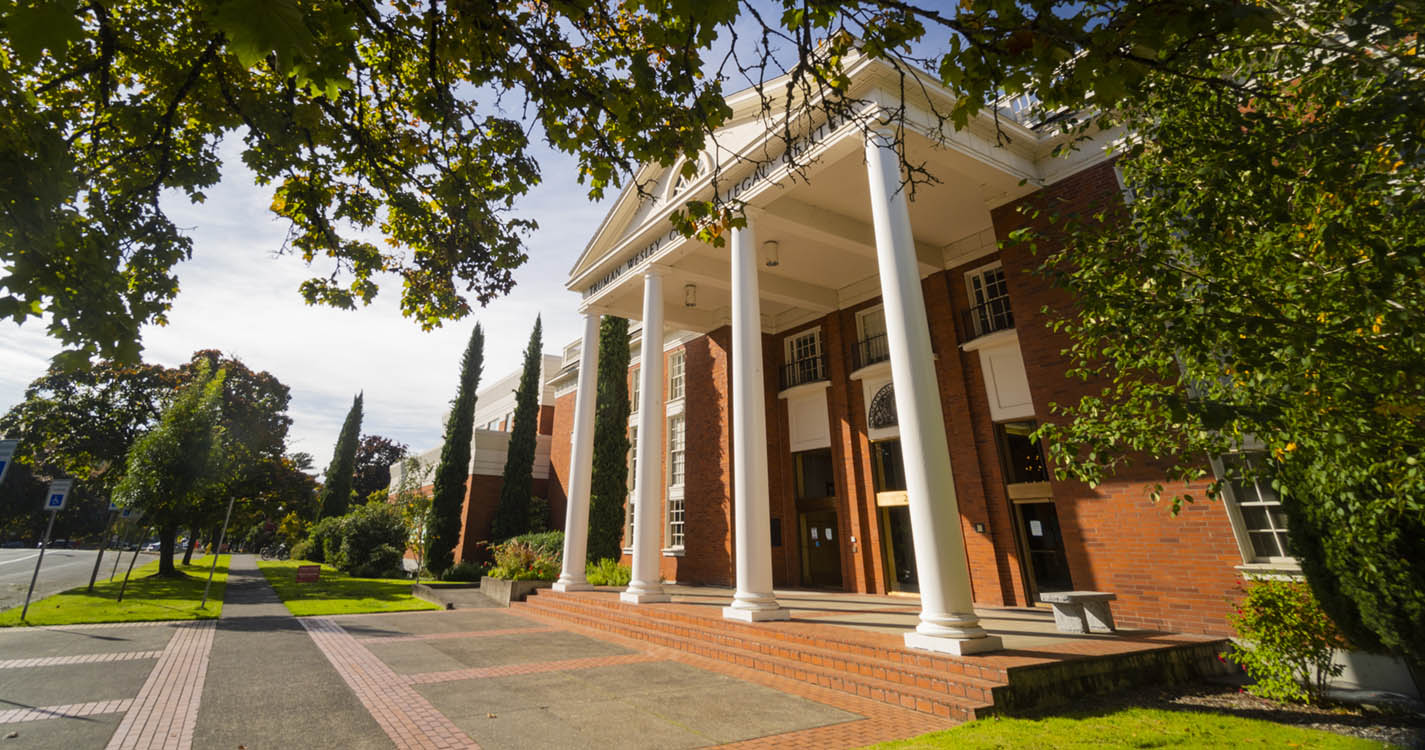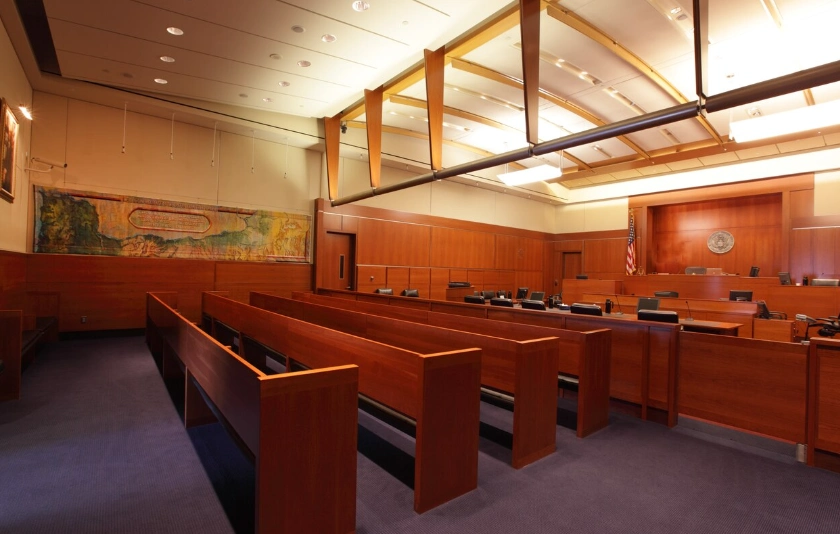Bruce Garrett JD’21 recently found himself in an enviable position: He never interviewed for his new job at the largest employment law firm in Portland.
It’s a remarkable new beginning for a law student who started off as a broadcast journalist and spent nearly a decade working for the federal government.
Timing played a factor. By the time he entered Willamette University College of Law, he was 33 years old. After exploring a few different careers, he’d reached a point where he felt hungry for something to be passionate about, and his newfound drive successfully shaped his academic journey.
“I found the process to be not only extremely interesting or fascinating, but it was intoxicating,” he said. “Learning how the law works was a life-changing experience for me.”
A start in public service
Captivated by the idea of a public service career, Garrett first considered broadcast journalism, finding work at radio stations during college in his home state of Washington.
The odds of success didn’t seem great — “Like moving to Hollywood and trying to become an actor,” he said — so in 2009 he shifted to a job in the Seattle area with the Social Security Administration, one of the only employers hiring in the Great Recession.
Garrett spent nine years there, moving up from taking phone calls on an 800 number to a role as disability adjudicator, helping people navigate the complex claims system. He truly enjoyed the work, but disliked the bureaucracy and felt its mission fell short.
“As someone who wanted to make change and have a meaningful impact on the world, I was limited,” he said. “It’s hard to do that if you’re a tiny cog in a big wheel.”
Learning monotonous rules and procedures, however, provided a great foundation for law school — if he could be interested in social security, he could be interested in anything, he joked.
Willamette Law’s location in the Pacific Northwest and close proximity to the state Capitol gave him access to opportunities he might not have had otherwise. “Being in Salem and around the Department of Justice and the Supreme Court is something you can’t create anywhere else,” he said.
His Oregon Supreme Court externship is a prime example of its benefits. After he’d completed a law externship in Washington state his first year, he started a judicial one under Justice Adrienne Nelson, reviewing briefs from the appellate court and writing petition memos. He’d only heard of it after a job event introduced him to Justice Meagen Flynn, who encouraged him to apply, he said.
Finding the right fit
By the end of Garrett’s first year, he not only felt confident pursuing labor and employment law as his career, he’d already secured a future summer position at Barran Liebman.
But he hadn’t planned on anything more than an informational interview when Law’s placement office first connected him to Traci Ray, the firm’s executive director.
After a casual visit, he applied for then landed a non-advertised summer associate position, spending the following summer drafting memoranda, conducting research and supporting attorneys with content and training development. Classes Garrett had taken from his mentor and employment law scholar, Professor Keith Cunningham-Parmeter, came in handy — the content was so relevant for the legal work that Garrett frequently referred back to the notes he’d taken as a refresher.
“Cunningham-Parmeter packs a lot of material in his classes, a lot of rules, and that was the kind of depth I needed to help me during my summer job,” he said.
Afterward, Garrett kept in touch with Barran Liebman, stopping by the office and even attending their annual conference. He wanted to remain on their radar, so he got involved in as many activities as possible.
Garrett founded the Labor and Employment Law Association, a student organization that connected him to several attorneys in the field, and became a note and comment editor who reviewed student submissions for the Willamette Law Review. He also served as a board member of the Moot Court, a member of the COVID-19 Reopening Task Force and a student ambassador who helped students navigate the early stages of law school, among other activities.
“I think you have to create opportunities for yourself to really make yourself stand out,” he said.
His self-initiative paid off. In July 2020, Barran Liebman offered him a job without an interview.
Garrett is glad he applied to law school a bit later in life. He learned a lot about himself in the years he spent exploring other careers, and he wouldn’t have been mature enough to tackle it quite the way he did now, he said.
“For a long time, law school was a pipe dream, and when it finally came to be it was pretty special,” he said. “I finally found something that’s a perfect fit for me.”




